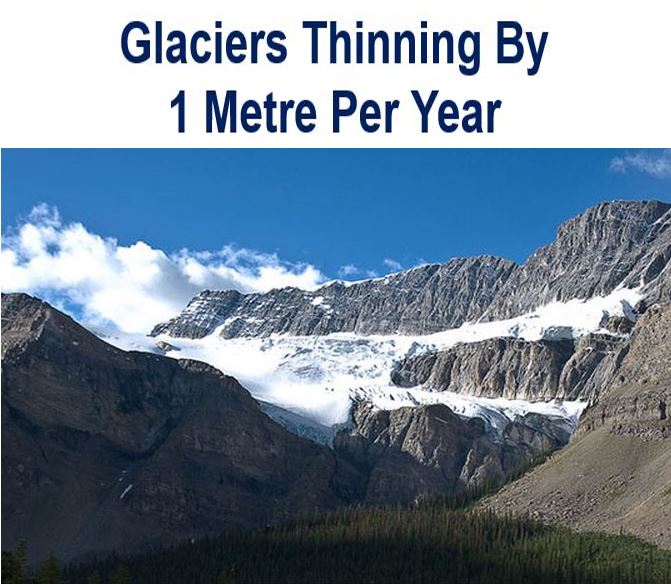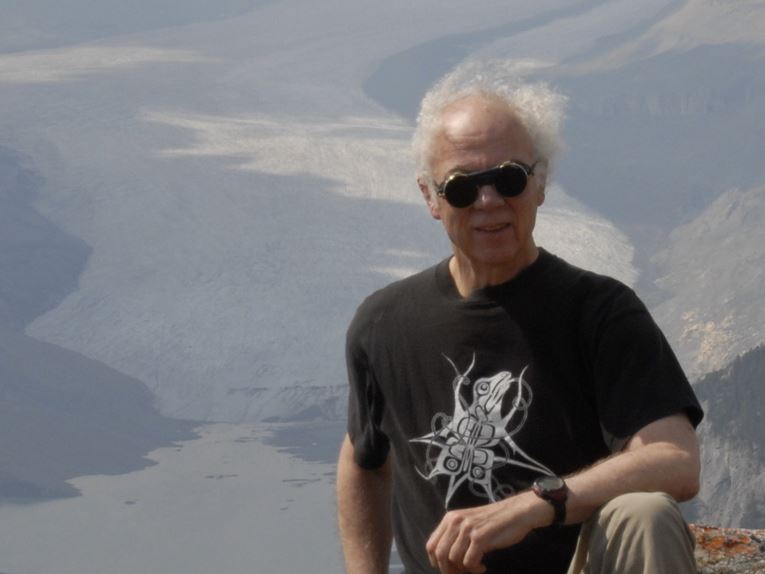The glaciers of Western Canada will be mostly gone by the end of this century, say University of British Columbia scientists. Seventy percent of all the glacier ice in Alberta and British Columbia will have melted away within the next 85 years, they say, creating serious problems for water quality, power supplies, agriculture and local ecosystems.
The researchers, whose findings have been published in the academic journal Nature Geoscience, explained that while rising temperatures are threatening glaciers in Western Canada, they are not all disappearing at the same rate.
The study was a collaboration between the University of British Columbia, the Pacific Climate Impacts Consortium, and the University of Iceland.

Ninety percent of the glaciers in the drier interior of the Rocky Mountains could be gone by the end of this century, while the wetter coastal mountains in northwestern British Columbia (BC) are forecast to lose about half their glacier volume over the same period.
Mountains will soon look like those in California
Garry Clarke, professor emeritus in the Department of Earth, Ocean and Atmospheric Sciences, at the University of British Columbia, said:
“Most of our ice holdouts at the end of the century will be in the northwest corner of the province. Soon our mountains could look like those in Colorado or California and you don’t see much ice in those landscapes.”
Professor Clarke and colleagues used computer models, climate simulations and observational data to forecast the fate of individual glaciers.
More than 17,000 glaciers
British Columbia and Alberta are hosts to more than 17,000 glaciers, which play a crucial role in energy production through hydroelectric power.
The glaciers are also important for the regions’ tourism, agriculture and water supply.
Prof. Clarke adds that while these issues are worrying, greater rainfall due to climate change may help offset some of the impact of glacier loss.

Freshwater ecosystems will be the most severely affected, the scientists believe. During the late summer, melting glaciers provide cool, plentiful water to several of the region’s headwaters.
Prof. Clarke said:
“These glaciers act as a thermostat for freshwater ecosystems. Once the glaciers are gone, the streams will be a lot warmer and this will hugely change fresh water habitat. We could see some unpleasant surprises in terms of salmon productivity.”
The scientists forecast changes in the area and volume of glaciers in B.C. and Alberta under a number of different greenhouse gas emission scenarios used by the IPCC (Intergovernmental Panel on Climate Change) in their most recent analysis of the state of the climate system.
Problem driven by fossil fuel combustion
The primary factor driving global warming in the decades ahead is rising CO2 levels caused by fossil fuel combustion.
The research team explained that the impact of global warming on glacier health is not immediately evident. While the surface area covered by the glaciers may remain unchanged, they are thinning at a rate of about one metre annually.
Prof. Clarke said:
“Most glaciers are only 100 or so metres thick. They’re losing volume but this loss we’re seeing right now is a bit hidden.”
Citation: Garry K. C. Clarke et al. “Projected deglaciation of western Canada in the twenty-first century”. Nature Geoscience. DOI: 10.1038/ngeo2407.

